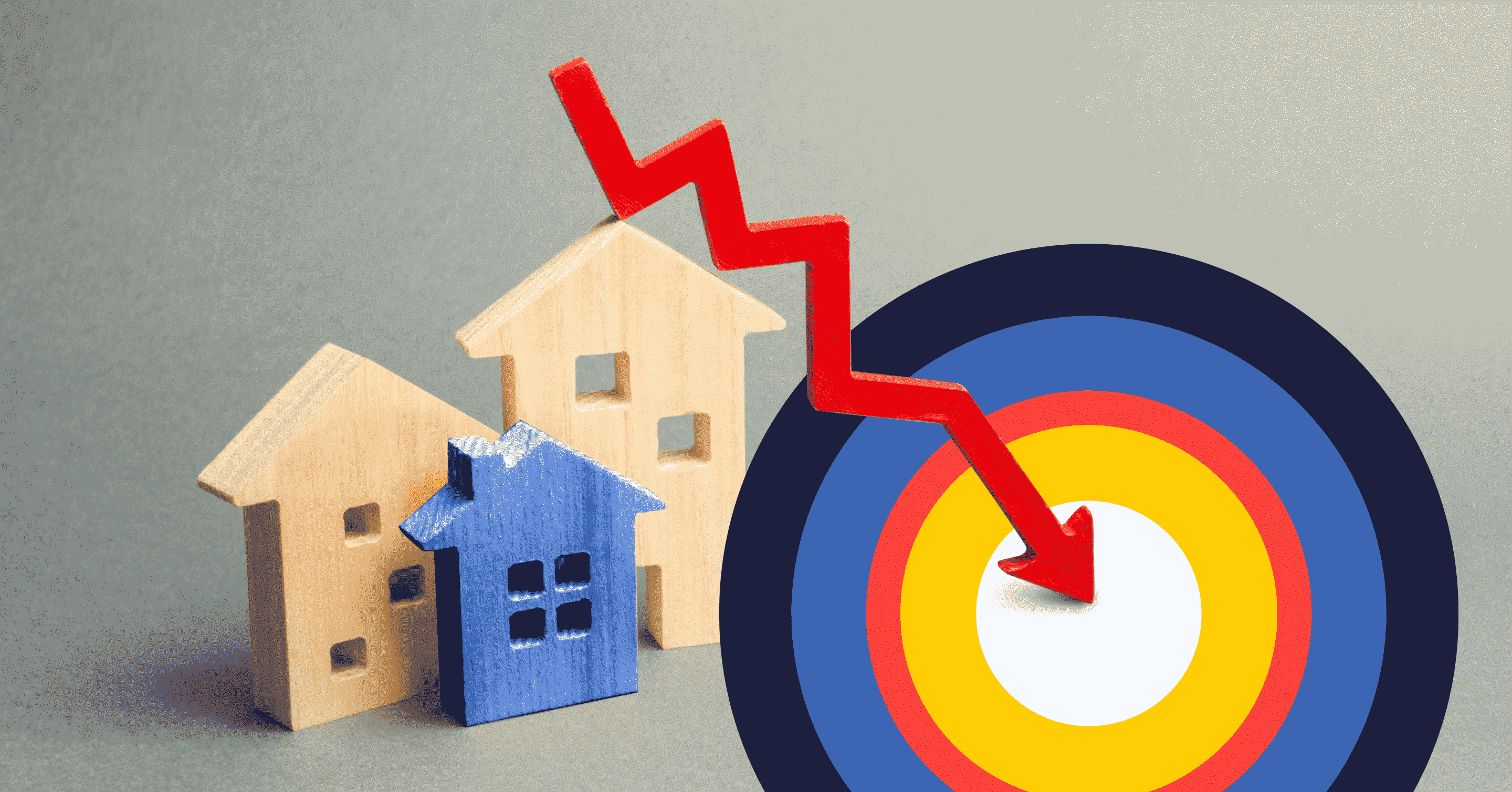Real Estate #Featured articles
Real Estate #Featured articles
How Much is My Home Worth? Factors & Methods for Home Valuation

Table of contents
Knowing the value of your home is essential for various financial decisions, whether you’re selling, refinancing, or simply tracking your investment. A home’s worth depends on several factors, including location, size, and market conditions. While professional appraisals offer a thorough assessment and more accurate home valuation, multiple ways exist to estimate your property’s value on your own.
Key Takeaways
- Your home’s value is closely tied to its location and the local real estate market.
- Reviewing recent sales of similar homes nearby offers a valuable estimate of your property’s value.
- Appraisers provide valuable insight into actual property value when accuracy is required.
What Determines Your Home’s Value?
The main factors determining your home’s value include its location, size, condition, and recent renovations or upgrades. Additionally, market conditions, such as interest rates and regional demand, affect how much a home is worth at any given time. Since the market is in constant flux, understanding what influences your home’s value can provide a clearer idea of what buyers may be willing to pay.
Location and Neighbourhood
Location is one of the most influential factors in determining home value. Larger cities and sought-after popular destination towns typically command higher prices as demand for homes is higher. Smaller, less popular areas may have lower buyer interest and, as a result, lower prices.
Property near amenities like schools, parks, and shopping centres tend to have higher prices when looking at specific neighbourhoods. Safety, the quality of nearby schools, and proximity to transportation hubs also play a role. A desirable neighbourhood can significantly increase the price buyers are willing to pay.
Property Type and Size
The type and size of a home can impact its market value. Generally, detached houses are valued higher than townhomes or condos. The total square footage, number of bedrooms, and bathrooms also contribute to value. Additionally, livable space (e.g., a finished basement) can add value over non-livable areas, like garages.
Age and Condition
Older homes may require more maintenance and can be more expensive to heat or repair, potentially lowering their value. However, well-maintained older homes, or those with recent updates, may still hold their value against newer builds. Newly built homes typically have modern amenities and fewer immediate maintenance needs, attracting buyers willing to pay a premium for this convenience.
Upgrades and Renovations
Renovations can significantly impact a home’s value. Kitchen and bathroom remodels, new flooring, or adding energy-efficient windows and appliances often increase a home’s value. Routine maintenance, like painting or roof repairs, may not significantly raise your home’s value but can make it more attractive to buyers.
The following table summarizes various home renovations, their estimated costs, and their average return on investment (ROI):
| Renovation Type | Estimated Cost (for a 2,000 sq. ft. home) | Average ROI |
|---|---|---|
| Professional Painting | $10,000 – $15,000 | 60% |
| Window Replacement | $15,000 | 75% |
| Roof Replacement | $8,000 – $10,000 | 75% |
| Foundation Waterproofing | $60 – $80 per linear foot | 75% |
| Front Door Replacement | $2,500 | 50% |
| Interior Door Replacement | $250 per door | 50% |
| Countertop Replacement | $3,000 | 75 – 100% |
| Bathroom Renovation | $5,000 – $15,000 | 62% |
| Flooring Replacement | Hardwood: $4 – $6 per sq. ft. plus $2 installation fee per sq. ft. Laminate: $1 – $3 per sq. ft. plus $1.50 installation fee per sq. ft. |
100% – 150% |
Local Real Estate Market
The broader real estate market influences home values based on regional supply and demand. During a buyer’s market, homes may take longer to sell and have lower valuations. In a buyer’s market, supply is higher than demand, giving buyers an advantage over sellers and leaving more room to negotiate prices.
A seller’s market typically leads to quicker sales and higher prices since sellers have more leverage. During a seller’s market, demand for homes exceeds supply, giving sellers the advantage over buyers who face competition from many other interested buyers.
Interest rates also play a role. When rates are low, buyers can afford more, allowing more buyers to enter the market. Those looking to purchase when rates are lower typically face increased competition, increasing home prices. When rates are high, buyers can afford less. This leaves some buyers unable to enter the market, reducing competition and home prices.
Find a better rate, and we’ll match it, beat it, or give you $500*.
*Conditions Apply
With nesto, it’s stress-free
Methods to Estimate Your Home’s Worth
There are several ways to estimate your home’s value, from professional appraisals to quick online tools.
Comparative Market Analysis (CMA)
A comparative market analysis (CMA) is one of the most reliable methods for estimating a home’s worth. Real estate agents typically provide a CMA, which compares recent sales from the past year of similar homes in your area, known as comparables. CMAs consider homes with similar features, such as size, property type, and condition, offering an accurate snapshot of your home’s market value.
Online Valuation Tools
Online valuation tools can provide quick estimates based on location, square footage, and recent area sales. While convenient, they may not account for unique property features or recent renovations, making them a good starting point but less accurate for precise valuation needs.
Professional Appraisal
Professional appraisals are the gold standard for accurate home valuations. Appraisers consider various factors, including internal and external features, market trends, and comparable property sales. An appraisal involves a detailed inspection of your home and offers a precise value that is especially useful for buying, selling, or refinancing. Appraisal reports typically match lenders’ guidelines and highlight any risks concerning financing specific to the region (flood zones), building construction (kitec pipe plumbing, knob and tube electrical wiring, possible asbestos, etc.), conditions (roof, foundation) or survey (easements).
Assessed Value vs. Market Value
It’s important to understand the difference between assessed value and market value. Municipalities use the assessed value to determine property taxes, which may not reflect your home’s market value.
Assessed values are typically outdated since they rely on assessments that may not occur yearly, depending on your location. For example, in Ontario, property values are assessed every 4 years. Market value is what a buyer is willing to pay in the current market based on comparables, often much higher than the assessed value.
Assessed Value vs. Market Value vs. Appraised Value
| Aspect | Assessed Value | Market Value | Appraised Value |
|---|---|---|---|
| Definition | The value assigned by a municipality for property tax purposes. | The price a property could sell for on the open market. | The value is determined by a licensed appraiser based on a formal evaluation. |
| Purpose | Used to calculate property taxes. | Reflects the current selling price in the real estate market. | Used for lending, insurance, or legal purposes. |
| Determined By | Municipal property assessors using formulas and algorithms. | Buyers and sellers in the open market. | Licensed appraisers using detailed property analysis. |
| Frequency of Update | Typically updated annually or every few years, depending on the municipality. | Constantly changing based on market conditions. | Conducted when required, such as for a mortgage or refinance. |
| Basis of Calculation | Property location, size, improvements, and municipal assessment criteria. | Supply and demand, comparable sales, and buyer preferences. | Comparable properties, property condition, location, and current market trends. |
| Legal Standing | Legally binding for tax purposes. | Informal and varies based on market dynamics. | Legally binding for transactions like mortgages and settlements. |
| Impact on Homeowners | Determines annual property tax obligations. | Determines the potential sale price of a property. | Determines loan amounts or value for legal proceedings. |
Other Considerations for Home Valuation
Home values can also be influenced by the season. For instance, spring and summer are typically peak seasons for home sales, as buyers often prefer to move in warmer months, and families with children prefer to move once the school year has finished.
This could lead to higher sale prices due to more buyers in the market and increased competition. Winter may have fewer buyers due to the colder months and holidays, which can sometimes lower sale prices.
When to Get a Professional Appraisal
While general estimates are helpful if you just want to keep track of your home value, there are specific situations where a professional appraisal is necessary. Professional appraisals are thorough and reliable, providing a well-rounded view of your home’s worth based on multiple criteria.
- Refinancing: Lenders require a recent appraisal to ensure the home’s value justifies the loan amount.
- Selling: Sellers benefit from an appraisal to set a realistic asking price.
- Estate Planning: Appraisals are often needed to assess estate value for planning or inheritance purposes.
Frequently Asked Questions
What is the difference between market value and assessed value?
Market value is what a buyer would pay in today’s market based on comparables. In contrast, the assessed value is determined by municipalities for property tax purposes and may not reflect current market conditions.
How do I find out the market value of my home?
You can get an estimate by looking at comparable sales in the area, using online valuation tools, or consulting a real estate agent. However, a professional appraisal is recommended for a precise value if you intend to sell or refinance (ordered by your mortgage lender).
What factors influence my home’s value the most?
The most influential factors on home value are location, property type, size, condition, upgrades, and current market conditions.
Can renovations increase my home’s value?
No matter how small, most renovations can increase a home’s value. Renovations such as kitchen upgrades, bathroom remodels, and new flooring tend to offer the highest return on investment.
How accurate are online home value estimators?
Online estimators provide a general estimate but can vary in accuracy. Consider a CMA from a real estate agent or a professional appraisal for more precise valuations.
How often should I get my home appraised?
Appraisals are typically recommended when refinancing, selling, or for estate purposes. Note that professionals usually order appraisals. Those ordered by individuals will typically cost more and won’t be utilized by professionals or lenders for their audit or consideration.
Does the season affect my home’s value?
Yes, the season can impact your home value. Spring and summer are generally the busiest homebuying seasons, which can drive up prices, while fall and winter may see lower activity and slightly lower prices.
Final Thoughts
Determining your home’s value involves multiple factors, from location to market conditions. Whether you’re planning to sell, refinance, or simply curious about your property’s worth, online tools and CMAs can offer a starting point, but professional appraisals provide the most accurate assessment.
For personalized guidance, consider consulting a real estate professional or nesto’s mortgage experts to explore your home financing options in today’s market.
Why Choose nesto
At nesto, our commission-free mortgage experts, certified in multiple provinces, provide exceptional advice and service that exceeds industry standards. Our mortgage experts are non-commissioned, salaried employees who provide impartial guidance on mortgage options tailored to your needs and are evaluated based on client satisfaction and advice quality. nesto aims to transform the mortgage industry by providing honest advice and competitive rates using a 100% fully digital, transparent, seamless process.
nesto is on a mission to offer a positive, empowering and transparent property financing experience – simplified from start to finish.
Contact our licensed and knowledgeable mortgage experts to find your best mortgage rate in Canada.
Ready to get started?
In just a few clicks, you can see our current rates. Then apply for your mortgage online in minutes!















